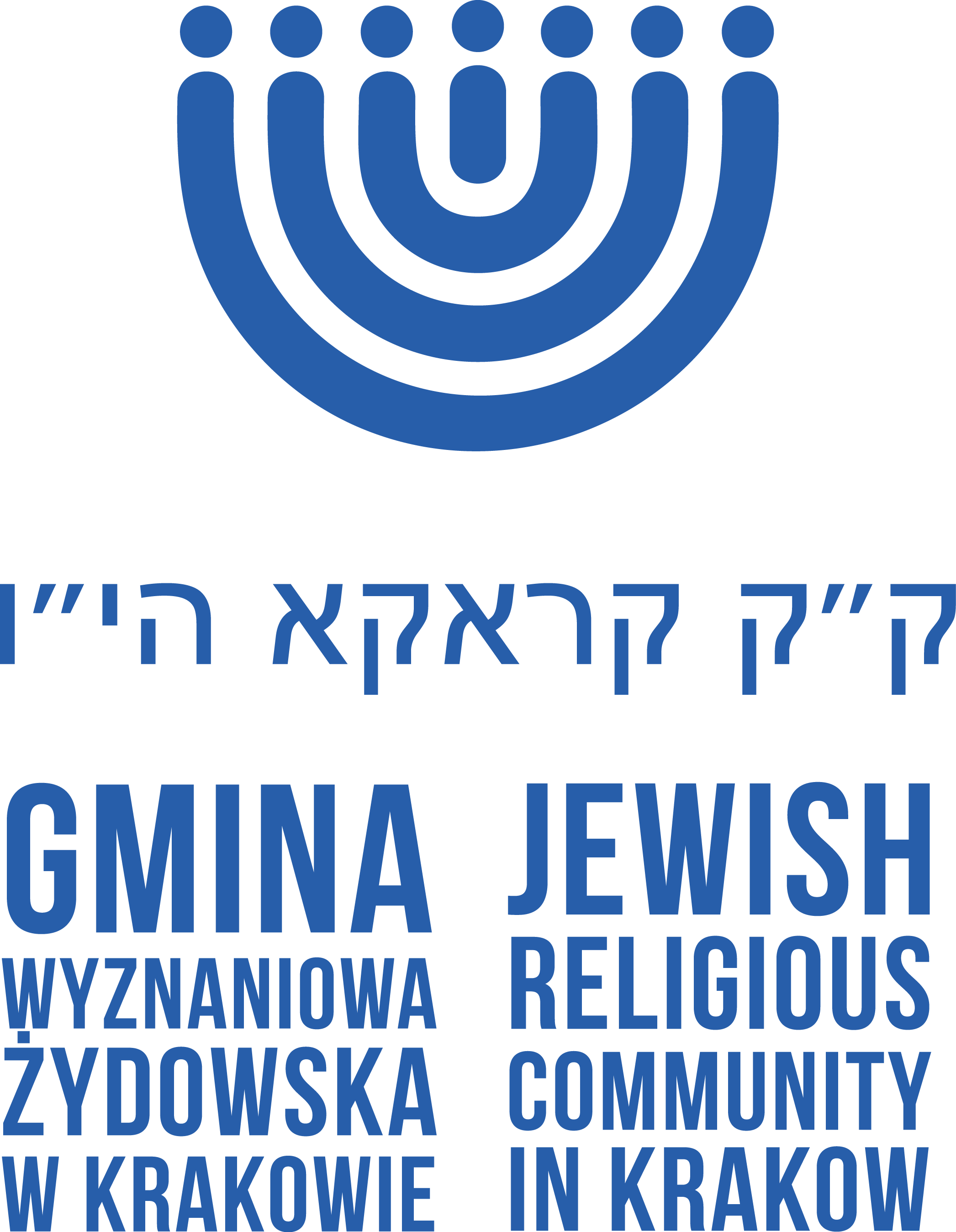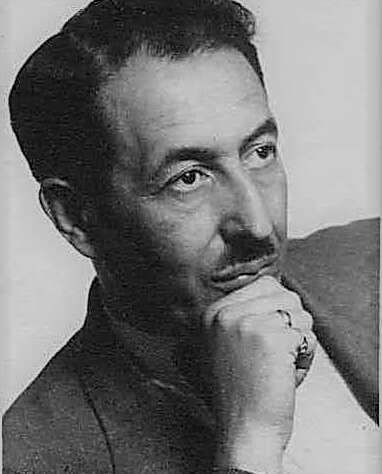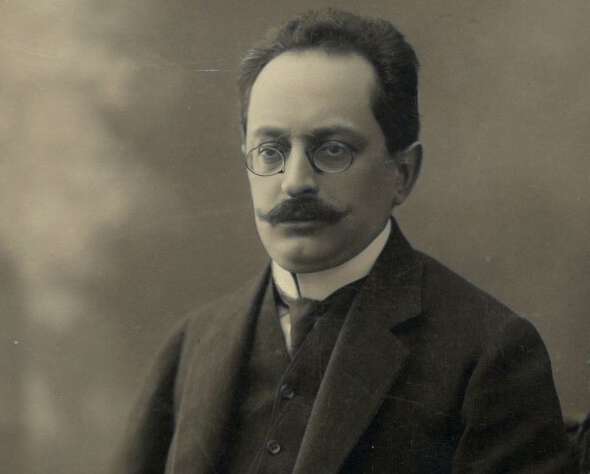Following the idea to ”increase fitness in the Jews”, Makkabi Krakow, a Jewish sports club was set up on 21st July 1909. In 1932 there were seventeen sections and 1,018 members in the club. The club emblem included the star of David surrounded by a circle with the letter M in the middle while the club colours were white and blue. Any Jewish boy or girl over 18 was welcome. The people behind the idea to set up the club were: Henryk Leser, Ignacy Mahler, Adolf Weissmann, Bernard Lermer, Józef Leserkiewicz, Franiciszek Scheuer, Józef Weiss, Józef Schönberg, Marian Korngold. The Makkabi Krakow stadium was located between Koletek and Dietla street. After WWII it was taken over by the Nadwiślan Krakow club. Sport in the Jewish community grew strong and…
Born on 20th July 1898 in Krakow, Leopold Infeld, son of Salomon and Ernestyna, née Kahane, was a theoretical physicist, an author of works about the Theory of General Relativity (he collaborated with A. Einstein), the field theory and electrodynamics, a member of the Polish Science Academy and the World Peace Council. Signatory of the Russell-Einstein manifesto; signatory of Letter no.34. Leopold Infeld was a student of a Kazimerz Wielki Department School and the Adacemy of Trade. After the maturity exam (1916), he enrolled the Jagiellonian University’s Faculty of Physics. In 1920 Infeld met Einstein in Berlin where he lived for 8 months. After his return to Krakow he obtained his PhD title (1921). In 1930 Infeld became an assistant and an associate professor at the John Casimir…
Filip Pinkus Eisenberg , a bacteriologist ; son of Abraham and Estera, née Spir , was born on 19th July (or August) 1876 in Krakow.A Krakow Gymnasium no.3 graduate, Eisenberg finished Medicine at the Jagiellonian University in 1899, followed by studies in Vienna. Between 1901-1902 Eisenberg worked as an assistant under Odon Bujwid’s supervision at the Department of Hygiene at the Jagiellonian University. Moreover, he worked as a researcher at Paris Pasteur’s Institute under the supervision of Ilia Miecznikow as well as at the Department of Hygiene at the University of Wroclaw under the guidance of Richard Pfeiffer. During the Polish-Bolshevik war he managed the Military Isolation Hospital in Warsaw (1919-1920). Eisenberg’s other position included a Director of the National Bacteriologist Unit in Krakow (1933-1939). Eisenberg joined…
Born on 15th July 1882 in Krakow, Szymon Feldblum, son of Majer and Amalia, née Weber, was a lawyer, a solicitor for the Jewish Religious Community in Krakow, a Vice-President of the Association of Residential Protection and one of the founders of B’nei B’rith – „Solidarność” – the Jewish Humanitarian Association in Krakow; a Zionist. Feldblum graduated from St.Jack’s Gymnasium in Krakow (1900) followed by the Faculty of Law and Administration at the Jagiellonian University (1906). After his gratuation from the University, Feldblum got a position at Krakow’s legendary lawyer’s, dr Ludwik Szalay (1857-1934) at the Goetz Palace located at św.Jana 3. When dr Szalay decided to retire, he left his Legal Office to Feldblum, knowing that he was leaving the clients, the company’s tradition and reputation…
The first issue of Nowy Dziennik, one of the most widely-read Jewish newspapers, first came out on 9th July 1918 9 with the initiative of Ozjasz Thon. During the war the paper was printed in Przywóz ( near Morawa Ostrawska) and its offices were located at Stradom 13. Later on, the headquarters was moved to Orzeszkowa street in Krakow.Initially, the newspaper had some hard time in free Poland as it published news about ani-Jewish incidents. Several attempts were made to seize the edition of Nowy Dziennik as well as to burn it at the stake. On 9th January 1919, the Post Office authorities working together with the army , withdrew the newspaper’s postal licence for distrubion for Galicia and Cieszyn Silesia which meant the newspaper issue was…
Born on 3rd July 1883 in Krakow, Sara Schenirer, daughter of Becalel and Roza, née Lach, was an educational and social activist and a founder of the Bajs Jakow school. According to Sean Martin, Schenirer, who grew up in a religious sprit, dreamed about secular education, which, at that time, was unavailable for a Jewish female. Since she had no opportunity to expand her knowledge of secular subjects, she audited courses ran in Polish by Polish educational female activists. Inspired by Rabbi Flesch, whom she met in Vienna, Sara Schenirer founded a girls-only school in 1917, located in Krakow, św.Katarzyny 1. Over time, the school had expanded. Despite the school’s profile being in juxtaposition with the role of a woman in traditional Jewish families, it had lots of supporters…
Born on 24th June 1889 in Krakow, Joachim Metallmann, son of Menasze and Regina, née Friedner, was a philosopher of natural science, methodologist and professor at the Jagiellonian University. A St.Ann’s Gymnasium (currently Ist Secondary School) graduate, Metallmann studied Philosophy and Physics at the Philosophy Department at the Jagiellonian University between 1907-1912. He obtained the PhD title in 1912. Since 1917 he held the position of a gymnasium teacher in Mielec and Krakow (the Adam Mickiewicz Gymnasium number VII, the Hebrew Gymnasium, Vth Secondary School). From 1931 up to the outbreak of WWII Metallmann was a Philosophy lecturer at the National Pedagogium in Krakow. In 1932 he went to France on a scholarship and obtained his habilitation after returning to Poland in 1933. In 1934, having the…
Today we remember Rabbi Jakób Polak. Living at the turn of 14th and 15th century, he was the first Rabbi in Poland known by his name. In Krakow, Polak set up the first yeshiva in Poland. This Talmudic academy initiated the expansion of the Jewish studies in Poland. According to Majer Bałaban, ”Jakób Polak was an unusual person with an unusual life. Born in Germany, he learned at the famous yeshiva in Nuremberg from Rabbi Jakób Margulies. Polak excelled at school and became a Rabbi in Czech Prague at a very young age. The bond between Prague and Krakow turned out to be a lot more than just strong and as a result, Mojżesz Fiszel gave Rabbi his own daughter, Estera as well as full control and…
Born on 17th June 1891 in Kołomyja, Jakub Stendig, son of Anschel, was a Krakow-based architect. His projects include buildings at Wietora 7, Komorowskiego 5, Karłowicza 13 and Metalowców 3. A 1915 graduate of the Buildings Department at the Industrial School of Krakow who also studied Architecture at the Academy of Fine Arts in Krakow where he obtained a builder’s licence in 1931. During the occupation times, Stendig was forced by the Germans to develop the infrastructure of the Płaszów camp. After the WWII outbreak, he was made accountable for organising and managing a Construction Departent. Apart from that, Stendig volunteered to rescue synagogue monuments. He collected several items and documents which he then catalogued. These included various liturgical relics like 150 Torahs, curtains and lambrequins, sacred…
Born on 13th June 1869 in Krakow, Rafał Saul Landau, son of Hirsch and Jetti, née Wasserberg, was the Councillor at Krakow City Council between 1905-1933, President of the Jewish Religious Community in Krakow between 1938-1939 , a supporter of assimilation and a Chairman of the Association of Progressive Israelites (1918 – 1939). Landau graduated from St.Jack Gymnasium in Krakow (1886), followed by the Faculty of Law at the Jagiellonian University (1890). He obtained his PhD title in 1892. He started his career as a lawyer in 1898. During WWI Landau was the Chairman of Jewish Cheap Cooking. Throughout the interwar period, he held the position of the President of the Jewish Religious Community in Krakow (1918-1939). Since 6th January 1933 he was the Chairman of a…











